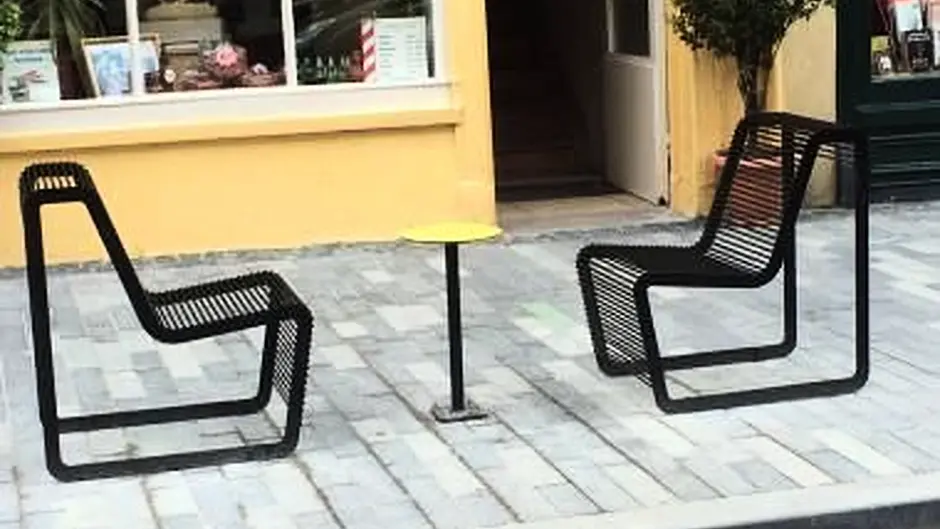Clonakilty Access Group has called on the West Cork Municipal District to ‘disability-proof’ its draft policy on licensing street furniture.
CLONAKILTY Access Group has called on the West Cork Municipal District to ‘disability-proof’ its draft policy on licensing street furniture.
The association issued a statement after the policy was discussed at a recent meeting of the West Cork Municipal District (WCMD) in Skibbereen.
The group was adamant that only licensed street furniture should be allowed because the use of illegally placed street furniture – including sandwich boards, tables and chairs – deny wheelchairs users, those who use mobility-aids and the visually impairments, as well as parents with buggies, their basic right of access.
The councillors discussed all aspects of the use and licensing of street furniture at their meeting, but the clearest message to emerge is that the legislation governing street furniture was made law under the Planning Development Act 2000.
The draft report is Cork County Council’s way of reviewing the licensing regime in the region – an area that is proving problematic for planners and engineers to regulate because, unlike Dublin and other metropolitan areas, the streets are so narrow.
Schull was discussed as a case in point. There is only one area in the village that has an area wide enough – 1.8m of footpath clearance to be precise – to comply with the regulations, and is eligible for an annual licence to put out street furniture.
The fact that other businesses put out furniture on the village’s narrow streets – which forces people to step out onto the roadway and in the path of oncoming traffic – was discussed.
The councillors expressed their concerns that West Cork’s most popular holiday destinations – such as Crookhaven, Goleen, Schull, Ballydehob and Bantry – would be affected and that only certain locations in Clonakilty would be wide enough to comply with the legislation.
Cllr Joe Carroll (FF) said the square in Baltimore was an excellent example of where street furniture is successfully used. But, he said, other places do it to beef up their businesses because they are struggling in a highly seasonal industry to meet their costs, especially their rates.
The policy states: ‘Cork County Council is sensitive to the financial challenges faced by businesses in Cork’ so applicants will have the option of applying for short term licenses at a rate of €12.50 per month.
But Cllr Danny Collins (Ind) said many businesses regard the proposed new fees as ‘just an extra cost’ and referred to A €630 fee required for an advertisement structure, and €125 per table.
Clonakilty’s executive engineer, Michael Tobin, said the situation does need to be controlled because the widespread use of advertising boards has become ‘a major problem.’ And, he added: ‘People are even putting canopies on the footpath.’ Schull’s executive engineer, Sarah Sinnott, agreed: ‘Pedestrians are being inconvenienced.’
As a wheelchair user, Cllr Patrick Gerard Murphy (FF) confirmed: ‘It is hard to navigate – the size of the footpaths has a lot to do with it. But in places where the footpaths are wide enough, there wouldn’t be a problem.’








